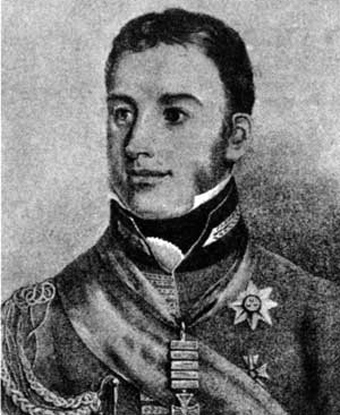Last updated: June 17, 2015
Person
Sir Edward Pakenham

NPS
Sir Edward Michael Pakenham was a promising young general who might have been a hero of the Napoleonic Wars if he hadn’t been killed in action, leading his countrymen in their attempt to invade New Orleans in 1815.
Pakenham was born into a life of priveledge as an Irish aristocrat. Like many young men of his station, Pakenham purchased a commission as a lieutenant in the Royal Army at only 16 years of age. However he proved to be a very capable leader, distinguishing himself in battles in the West Indies and early in the Napoleonic Wars. Wounded twice through this travails, and brother-in-law to another famous general, the Duke of Wellington, he earned the respect of troops and was reported to be generally liked by soldiers and officers alike.
His tactical expertise and successes earned him a promotion to general in 1814 at age 36, and an appointment to command the British forces in North America in the war against the United States. Although personally opposed to Britain’s involvement in the war, Pakenham was the consummate gentleman and eminently dedicated to his post, and so headed to the United States dutifully, but tragically.
When he arrived to lead an army to invade the important trading port of New Orleans, he was appalled by Andrew Jackson’s decision to send troops in the middle of the night to raid the British camp. Preferring what he thought to be more noble warfare of open field sieges, he arranges his men to attack New Orleans in two flanks in early January 1815.
Underestimating the power of the American guns, this decision turns out to be disastrous. In the 30-minute Battle of New Orleans, Pakenham was first hit by grapeshot, killing his horse and wounding him in the knee. As he rose from the battlefield to mount another horse and continue riding forward he was hit in the arm. The final shot proved fatal, hitting him in the chest. Sir Edward Michael Pakenham died on the battlefield, shortly after giving the order to call forward the reserves and keep pushing toward New Orleans.
Pakenham’s body was shipped back to Ireland to be interred in a family cemetery. A generation after his death, Pakenham was remembered in an essay written by his subordinate officers at the Battle of New Orleans, published in the 1941: “in the discharge of his duty to his king and country, so eminently upheld the character of a true British soldier.”
